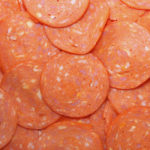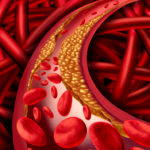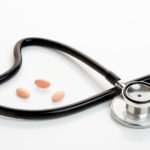By David Blyweiss, M.D., Advanced Natural Wellness
October 11, 2017
- 4 simple steps to prevent heart attack, stroke and cognitive decline
- Lower blood pressure without dangerous prescription drugs
- Targeting the real cause of plaque build up
A new presidential advisory from the American Heart Association (AHA)/American Stroke Association notes that the following steps can prevent heart attack, stroke and cognitive decline. The AHA has dubbed it “Life’s Simple 7” and it includes…
- Managing blood pressure
- Controlling cholesterol
- Keeping blood sugar normal
- Getting regular physical activity
- Eating a healthy diet
- Losing extra weight
- Not smoking
While I agree with most of this advice, there is nothing “simple” about it. In fact, there is a lack of clarity in these recommendations that can lead even the most well intentioned person astray. So I’m going to dedicate this issue and this coming Friday’s issue to clearing up the confusion.
For example, does managing blood pressure means taking blood pressure lowering medication on a regular basis? What about cholesterol? Should you be taking a statin drug?
And just exactly what does “eating a healthy diet and getting more physical activity” really mean?
Let me show you how gaining control of just four factors in your life can really simplify reaching these goals, and what it REALLY takes to prevent heart attack, stroke and mental decline.
In this first issue of the two-part series, I’ll address the circulatory issues related to blood pressure and cholesterol. Then, in the October 13 issue of Advanced Natural Wellness I’ll give you two more simple steps that will tie everything together for total health.
MD Exposes the Hidden Danger to Your Eyes

When your eyesight starts to fail, it's a real problem. Suddenly you can't go to the grocery store... you can't get to the doctor if you have an emergency... you can't meet your friends for dinner…
Your "regular" doctor doesn't have time to keep up with the latest research. And the same goes for eye doctors. They go to school to learn how to fit you for glasses and contacts, but have no way of preventing the damage and loss of eyesight that threatens your freedom and independence.
Let me show you something that explains a LOT about how your eyes work.
In my FREE Special Report, I'll show you a HUGE, untapped resource for your eyes that safely and naturally restores clear, effortless eyesight.
Click here to get started...
Lower Blood Pressure without Dangerous Prescription Drugs
High blood pressure poses a serious threat to your health. Left unchecked, it can result in an unexpected heart attack or stroke. However, drugs that lower blood pressure come with a lot of problems.
For example, certain types of beta blockers like atenolol and metoprolol can worsen glycemic control, lower HDL and increase triglycerides. All of these events actually increase your risk of heart disease.
This is why I always opt for natural solutions.
The best way to reduce blood pressure is to increase your nitric oxide (NO) levels. This compound helps relax and expand blood vessels. This allows blood to surge through them exactly the way it should – without having to force its way through the blood vessels.
You can’t really get a sustained NO boost with the foods you eat, so your best bet is a beetroot juice supplement. For example, 250 ml of beetroot juice each day can lower your blood pressure by about 8/4 mmHg (8 points on the top number, 4 points on the bottom number). It also reduces arterial stiffness and thickening of the arteries.
Garlic is also great for blood pressure. The effects of this “stinky rose” are similar to those of the beta blocker atenolol, without the side effects. Garlic can also reduce plaque in your arteries and improve circulation. Just two cloves a day will do the job. (Or if you want to keep your breath sweet smelling, try a supplement of 1200 mg. aged garlic extract each day in divided doses of 600 mg. twice a day.)
There’s also a little trick to counter the effects of too much salt. Just add 4,700 mg of dietary potassium and 400 to 800 mg of magnesium in your regular diet. Not only will these minerals improve your blood pressure, they’ll also cut your chances of coronary artery disease and stroke.
Why Cholesterol Doesn’t Matter: Targeting the Real Cause of Plaque Build up
Statin drugs are the first line of defense for controlling cholesterol. But they’re a dodge! Cholesterol isn’t nearly as important as statin makers would have you think.
Are You Suffering From...
- Love handles and a pot belly
- Romance that isn't what it used to
- Forgetfulness and inattention
- Low (or no) strength and endurance
- A sex drive that's shifted into neutral...or worse
If so...you may have Mature Male Burnout. Click here to discover more about this unique condition and what you can do about it.
Even worse, statins come with a slew of heart-damaging side effects. Among other things, they increase the accumulation of calcium deposits on the walls of your arteries. They damage your muscles (remember, your heart is a muscle) and rob your body of much-needed CoQ10.
In the meantime, cholesterol isn’t even a real problem. In fact, most people who have heart attacks have cholesterol levels well within the normal range. The real problem comes in the form of something called ‘LDL particle size”.
You see, some LDL particles are large, fluffy and buoyant. This kind is harmless.
But others are small and dense. These are the kind you have to watch out for. They can easily enter your arterial walls and become trapped. This sets off a chain of events that result in blockages and narrowed arteries.
To top it off, an atherogenic substance called apolipoprotein B (apoB) attaches itself to the surface of these LDL particles. It’s highly atherogenic and promotes plaque build-up in your arterial walls.
An advanced form of lipoprotein testing, called Vertical Auto Profile (VAP) can tell you where you stand. Among other things, this test will measure your apoB levels and tell you if your LDL particles are the small dangerous one or the large harmless ones.
Niacin can go a long way in protecting against the smaller, more dangerous LDL particles. Start on a low dose, about 50-100 mg daily. Then slowly add 100 mg each week until you’re up to 1,000 mg each day. Take it in divided doses over the course of the day. (If the flush bothers you, take an 81 mg coated Bayer aspirin just beforehand.)
To protect against apoB, supplement with pantethine, a biologically active form of vitamin B5. Just 600 to 900 mg daily can slash apoB levels by 8% in as little as 12 weeks.
Check your inbox this coming Friday to discover two additional steps that are core building blocks to living a longer and healthier life.
SOURCES:
Gorelick PB, et al. Defining Optimal Brain Health in Adults: A Presidential Advisory From the American Heart Association/American Stroke Association. Stroke, 2017; STR.0000000000000148.
Nakazato R, et al. Statins use and coronary artery plaque composition: results from the International Multicenter CONFIRM Registry. Atherosclerosis. 2012 Nov;225(1):148-53.
Webb AJ, et al. Acute blood pressure lowering, vasoprotective, and antiplatelet properties of dietary nitrate via bioconversion to nitrite.Hypertension. 2008 Mar;51(3):784-90.
Kapil V, et al. Dietary nitrate provides sustained blood pressure lowering in hypertensive patients: a randomized, phase 2, double-blind, placebo-controlled study. Hypertension. 2015 Feb;65(2):320-7.
Ashraf R, et al. Effects of Allium sativum (Garlic) on systolic and diastolic blood pressure in patients with essential hypertension. Pak J Pharm Sci. 2013 Sep;26(5):859-63.
Houston MC. The importance of potassium in managing hypertension.Current Hypertension Report. 2011 Aug;13(4):309-17.
L Kass, et al. Effect of magnesium supplementation on blood pressure: a meta-analysis. Eur J Clin Nutr. 2012 Apr;66(4):411-8.
Morgan JM, et al. Effects of extended-release niacin on lipoprotein subclass distribution. Am J Cardiol. 2003 Jun 15;91(12):1432-6.
Evans M, et al. Pantethine, a derivative of vitamin B5, favorably alters total, LDL and non-HDL cholesterol in low to moderate cardiovascular risk subjects eligible for statin therapy: a triple-blinded placebo and diet-controlled investigation. Vasc Health Risk Manag. 2014 Feb 27;10:89-100.







